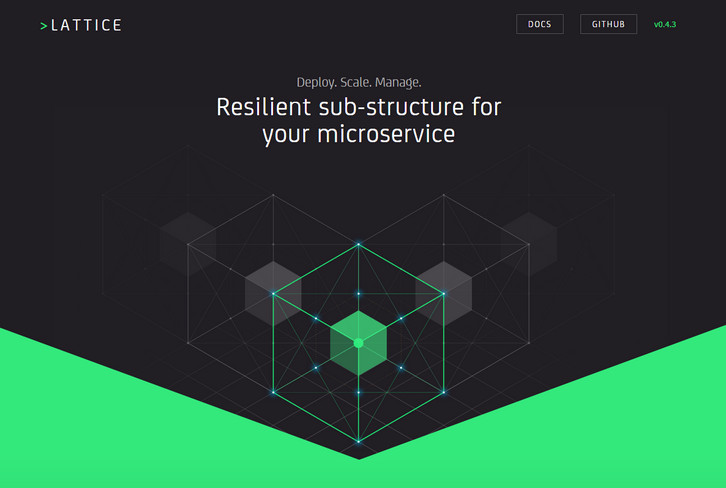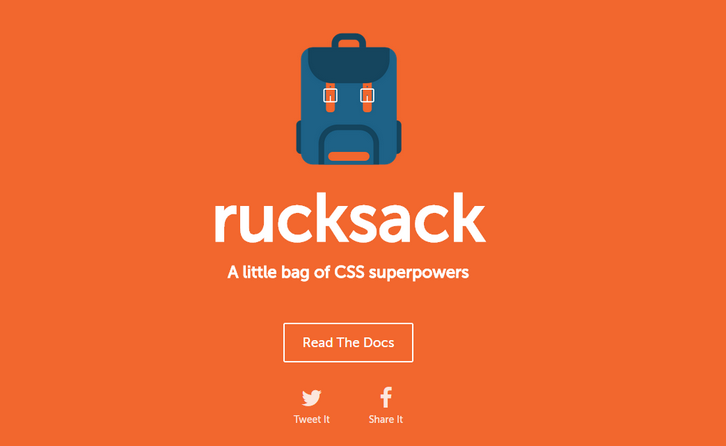Grav is a Fast, Simple, and Flexible, file-based Web-platform. There is Zero installation required. Just extract the ZIP archive, and you are already up and running. It follows similar principles to other flat-file CMS platforms, but has a different design philosophy than most. Grav comes with a powerful Package Management System to allow for simple installation and upgrading of plugins and themes, as well as simple updating of Grav itself. The underlying architecture of Grav is designed to use well-established and best-in-class technologies to ensure that Grav is simple to use and easy to extend.

Requirements: –
Demo: http://getgrav.org/
License: MIT License
Expose is a simple static site generator for photoessays. If you’re into photography, you probably have folders of images and videos. Expose is a Bash script that turns those images and videos into a photoessay. If you’re not a fan of that look, a Medium-style theme is included. It has been tested on Windows/Cygwin, OSX, and should be fine on Linux.

Requirements: –
Demo: https://github.com/Jack000/Expose
License: MIT License
Popmotion is a 12kb JavaScript motion engine. Make it pop with animation, physics, and input tracking. In the browser, on Node, anywhere. Native DOM support: CSS, SVG, SVG path and DOM attribute support, out of the box. Unlimited: Custom callbacks allow you output to any numerical property or API. Power anything: Use with jQuery, Canvas, Three.js, WebSockets, etc. Seamless interaction: Tracks velocity for hand-off between input, animation and physics. Node support: Run on a server or an Arduino to fuel the IoT. Open rAF loop: Run any Process on the core requestAnimationFrame loop.

Requirements: JavaScript Library
Demo: http://popmotion.io/
License: MIT License
CSSNano is a modular minifier that aims to utilise small modules from the PostCSS ecosystem, rather than being an all-encompassing module that may be difficult to contribute to. Because it is written on top of PostCSS, it is able to do more than simple whitespace transforms – including advanced optimisations such as custom identifier reduction, z-index rebasing, and adjacent selector merging.

Requirements: –
Demo: http://cssnano.co/
License: MIT License
Lattice is an open source project for running containerized workloads on a cluster. Lattice bundles up http load-balancing, a cluster scheduler, log aggregation/streaming and health management into an easy-to-deploy and easy-to-use package. The scheduler balances the allocation of container process resources across the infrastructure. The algorithm uses a distributed auction model based on the resource availability of the hosts and the current placement of your containers.
Lattice aspires to make clustering containers easy. Lattice includes a cluster scheduler, http load balancing, log aggregation and health management. Lattice containers can be long running or temporary tasks which get dynamically scaled and balanced across a cluster. Lattice packages components from Cloud Foundry to provide a cloud native platform for individual developers and small teams.

Requirements: –
Demo: http://lattice.cf/
License: See License Agreenment
Lightning Design System helps you create the world’s best enterprise app experiences. With the Design System you can build custom applications with a look and feel that is consistent with Salesforce core features — without reverse engineering our styles! Simply download our platform-agnostic CSS framework and get started today.
You can utilize the detailed guidelines to confidently design excellent apps that fit right into the Salesforce ecosystem. With the Design System, you get access to all of the Salesforce core visual and interaction design patterns so that you can follow established best practices and build apps that have a consistent look and feel with the Salesforce user experience.

Requirements: –
Demo: http://www.lightningdesignsystem.com/
License: Creative Commons License
Rucksack is a little bag of CSS superpowers. It makes CSS development fun again, with features the language should have come with out of the box. It’s built on PostCSS, it’s modular, it doesn’t add any bloat, and it’s lightening fast.
Integrating Rucksack into your workflow is easy. There are plugins for most build tools, and an npm module to integrate it manually or process your CSS directly on the command line. Since it’s built on the PostCSS ecosystem it plays nice with all other CSS pre and post processors, and can even integrate into Stylus directly.

Requirements: CSS
Demo: http://simplaio.github.io/rucksack/
License: MIT License
GridLayout is a lightweight grid system for advanced horizontal and vertical web app layouts, with support for older browsers. If you need to create complex app layouts, similar to native ones, with support for older browsers. GridLayout is a ~1 KB (minified and gzipped) CSS file and a ~0.5 KB JavaScript file used only for Internet Explorer support. If you just support modern browsers, you’re probably better off using Flexbox. GridLayout is licensed under the MIT license.

Requirements: –
Demo: https://ghinda.net/gridlayout/
License: MIT License
jQuery.my is a plugin for real time two-way data binding. It mutates object given as data source, reflecting interactions between user and UI. Data bindings, facade appearance and CSS styling of an app are all defined using single manifest, which is standard javascript object. Manifests are JSONable.
jQuery.my recognizes both standard HTML controls and complex composites created using rich ui plugins. Controls built with jQuery UI, Select2, CodeMirror, Ace, Redactor, CLeditor, jQuery Mobile are supported out of the box. jQuery.my provides comprehensive validation, conditional formatting, complex dependencies, runtime form structure manipulation. $.my forms can run nested, each jQuery.my instance can be a composite control for parent form.

Requirements: jQuery Framework
Demo: http://jquerymy.com/
License: License Free
Apostrophe is a design-driven, in-context CMS built on Node.js and MongoDB. It provides the tools to develop both simple and complex content-driven websites through simple templating and modular functionality. The editing experience is designed around the idea that content mangement should be easy, and therefore editors can create and manage their content right on the page itself.
Apostrophe is built on an accessible technology stack that focuses on ease of use as well as performance. Node.js provides an easy entry point for front-end Javascript developers and a playground for experienced back-end developers. The Nunjucks templating language allows for easily including data and editable content on any page. And MongoDB provides the necessary speed to serve Apostrophe’s content-driven pages.

Requirements: Node.js and MongoDB
Demo: http://apostrophenow.org/
License: MIT License













